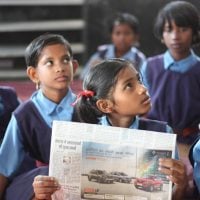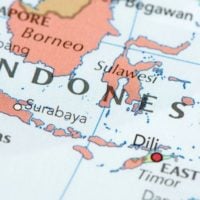Deadline: 31-Jan-23
The Council of Europe welcomes applications from all candidates who fulfil the specific profile of the activities, irrespective of gender, disability, marital or parental status, racial, ethnic or social origin, colour, religion, belief or sexual orientation.
Features
- It safeguards its key features:
- Dissemination and update of the educational resources for human rights education
- Advocacy for the inclusion of human rights education and recognition of the role of non-formal learning therein
- Renewing the informal networks of trainers and multipliers and supporting the qualitative development of training for human rights education
- Supporting key national activities for training of trainers, multipliers and advocates for human rights education – the programme of national and regional training courses for human rights education with young people.
Aim
- This training course will develop the competences of participants to act as trainers or multipliers for human rights education in the context of regional, national or local training courses organised by partner organisations making use of COMPASS and supporting the implementation of the Council of Europe Charter on Education for Democratic Citizenship and Human Rights Education.
Objectives
- To strengthen participants’ understanding of key concepts of human rights education with young people.
- To review and address the essential competences, skills and attitudes for trainers working with human rights education in non-formal learning settings.
- To familiarise participants with the approaches and activities of Compass (the manual on human rights education with young people) and with how to best use it and adapt it to local contexts and realities.
- To analyse current developments and new trends in human rights education, including online learning and activism, throughout Europe.
- To motivate and enable the participants to actively use information and communication technology as part of their own learning and in their human rights education activities.
- To associate the participants and their organisations with the priorities of the Youth Department of the Council of Europe related to human rights education and to the implementation of the United Nations World Programme on Human Rights Education.
- To contribute to the development of networks of trainers on human rights education with young people and to the mainstreaming of human rights education in youth work and non-formal learning
Details
TOTHRE 2023
- The 2023 edition of TOTHRE will be held between May and December. It will build on the experiences with human rights education of the past years and incorporate the conclusions and recommendations of the 3rd review of the Council of Europe Charter on Education for Democratic Citizenship and Human Rights Education and of the Forum on Citizenship and Human Rights Education.
- The training process will consist of three phases:
- An initial e-learning phase (May-September 2023)
- A residential 9-day training course to be held at the European Youth Centre Budapest from 24 September to 2 October 2023.
- Follow-up activities, including e-learning (October-December 2023)
Competences to be developed through the course
- Competences to be developed through the course The course contents and methodology are designed so that the participants will be able to develop (or begin developing) core competences for trainers in human rights education with young people. The list of competences below will be the reference for planning and monitoring learning in the course:
- Knowledge of major instruments for the protection and promotion of human rights and the ability to connect them with the lives of young people;
- The capacity to converse and to facilitate conversations on global and contemporary human rights threats and challenges;
- The ability to introduce human rights education as an educational concept in an autonomous and credible way;
- Awareness about human rights violations and abuses at both global and local level, and the ability to act upon them using human rights education;
- Knowledge about the relevant programmes and instruments of the Council of Europe for youth and human rights education and ability to connect with global initiatives such 4 as the Sustainable Development Goals and the World Programme on Human Rights Education;
- Critical thinking skills and the ability to create multiple perspectives on contemporary human rights issues and dilemmas;
- The capacity to recognise and address the values and ethical norms underlying human rights education;
- The capacity to be an advocate for human rights education and to liaise with stakeholders concerned with the promotion of human rights education at a regional, national and local level.
- Intercultural learning competences, including empathy, tolerance of ambiguity, and distance to social roles in training situations;
- The ability to use COMPASS including the adaptation of its activities taking into consideration local realities, social contexts and the needs of target groups;
- The ability to constructively deal with conflict in the context of human rights education activities;
- The capacity to develop and manage human rights education activities following the quality standards for education and training activities of the Youth Department of the Council of Europe;
- Practice in and awareness of the use of information and communication technology in training and the related human rights issues;
- Understanding key principles of non-formal education and their application in human rights education;
- Knowledge and understanding of different approaches to learning;
- The capacity to assess and evaluate the results of human rights education activities and programmes;
- The ability to work co-operatively;
- The capacity to design and deliver human rights education activities;
- The ability to facilitate learning processes in non-formal education based on Compass
- The ability to recognise and translate human rights value framework into personal, social and professional actions;
- The ability to plan own learning.
Eligibility Criteria
- The course is designed for participants who are:
- trainers or facilitators in non–formal education, especially within youth organisations and associations, in youth work activities and in other NGOs concerned with human rights education;
- teacher trainers with a multiplying role within formal education systems interested in introducing non-formal learning methodologies in their activities on HRE;
- Youth workers, human rights activists, volunteers experienced in and intending to function as trainers and advocates for human rights education.
- All participants must also:
- Be able to work in English
- Be aged between 18-30 years old, exceptions can be made if justified
- Be resident of one of the countries state parties to the European Cultural Convention; in exceptional cases some participants from other continents may also be invited
- Be supported by a youth organisation or institution within which they can act as multipliers of HRE
- Already have experience in working as trainers or facilitators with young people
- Be able and committed to act as multipliers or trainers in HRE as a result of the course
- Be motivated to develop their competences in human rights education and to share their experiences with other participants
- Be committed to attend for the full duration of the course, including the preparatory and follow-up phases (approximately 2 hours per week during Phases 1 and 3)
- Be interested and able to develop and implement human rights education training project with young people. All participants in the training course are expected to implement HRE projects or programmes, such as national training courses in human rights education, translation and dissemination of Compass, advocacy projects on human rights education or others.
For more information, visit Council of Europe.









































